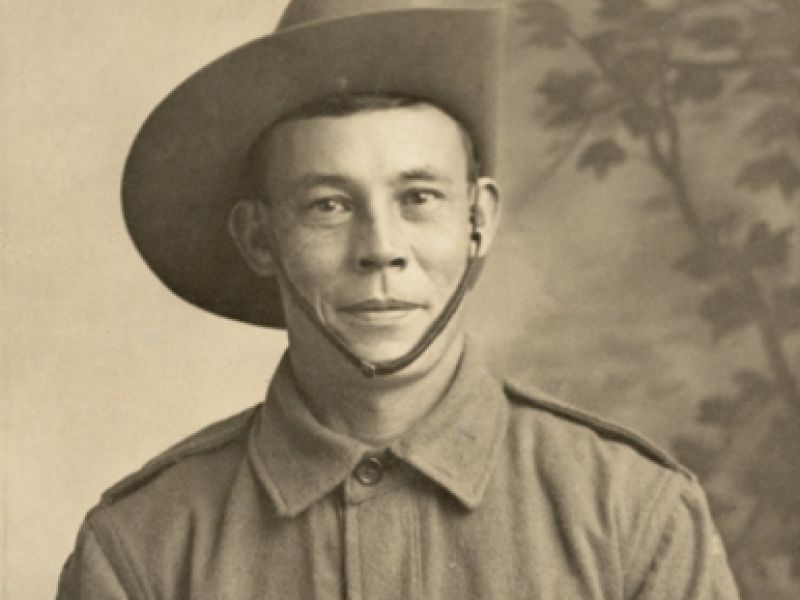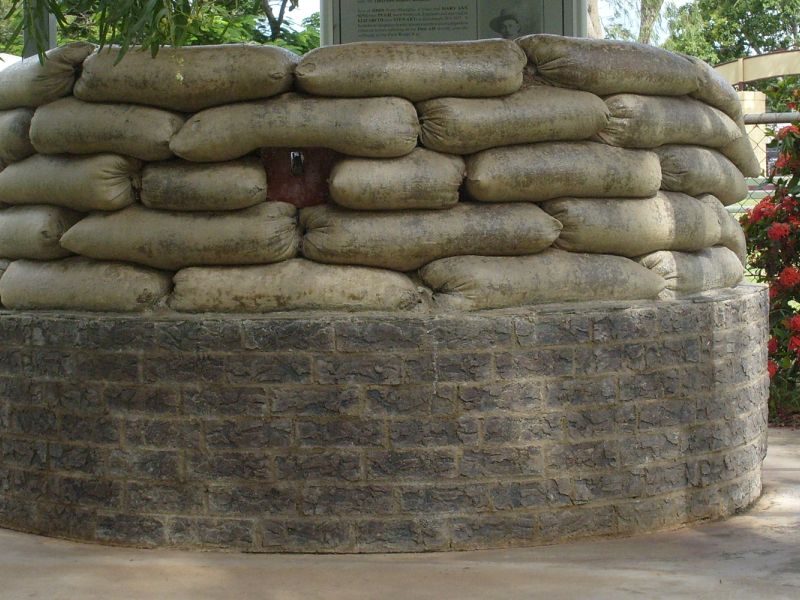The Gallipoli Sniper

Despite not being “of substantial European heritage” William Edward Sing, whose father was Chinese, was accepted into the 5th Australian Light Horse Regiment on the 26th of October 1914. He arrived on the Gallipoli Peninsula in May 1915.
He was an experienced kangaroo shooter so his skill with a rifle made him a natural choice as a sniper. He is known to have killed up to 201 of the enemy and for the gallantry he displayed in the performance of his role, Sing was awarded the Distinguished Conduct Medal.
Trooper Sing, known generally as ‘Billy’, sniped from a position at Chatham's Post. His exploits even came to the attention of General Birdwood, who issued an order containing his compliments on Trooper Sing's performance. He was also Mentioned in Dispatches by General Sir Ian Hamilton.
After the Australians were evacuated from Gallipoli, Trooper Sing was sent first for training in England and then to fight in France, as part of the 31st Australian Infantry Battalion.
Warfare on the Western Front was very different to that on Gallipoli. The heavy use of artillery meant that opportunities for sniping were much reduced. Nevertheless, now as Private Sing, he was able to use his skills and in 1917 led a patrol tasked with eliminating German snipers at Polygon Wood, in Belgium. He was recommended for, though not awarded, the Military Medal for those actions. Again Mentioned in Dispatches for gallantry, this time by the Commander of I ANZAC Corps, General Birdwood, Sing was also later awarded the Belgian Croix de Guerre, probably for his role in the actions that resulted in his recommendation for the Military Medal.
During his service ‘Billy’ Sing had significant medical problems. He contracted the diseases influenza, rheumatism and mumps, was gassed, sustained shrapnel wounds to both legs and his back and was shot on two occasions. He spent significant time in hospital and eventually was returned to Australian and discharged as medically unfit.
After his discharge Sing returned to Queensland and tried a number of ventures, including farming a Soldier-Settler block and mining near his home town of Clermont, but those ventures failed. Finally, in 1942 he moved to Brisbane to be closer to his sister. A year later, William Edward Sing died of heart failure, likely as a result of the significant medical conditions he’d experienced. He was only 57 years old. At the time of his death he was virtually penniless and was living in a boarding house in Brisbane.
The ‘Gallipoli Sniper’ is buried at Lutwyche Cemetery in Brisbane.
Source: AWM website

